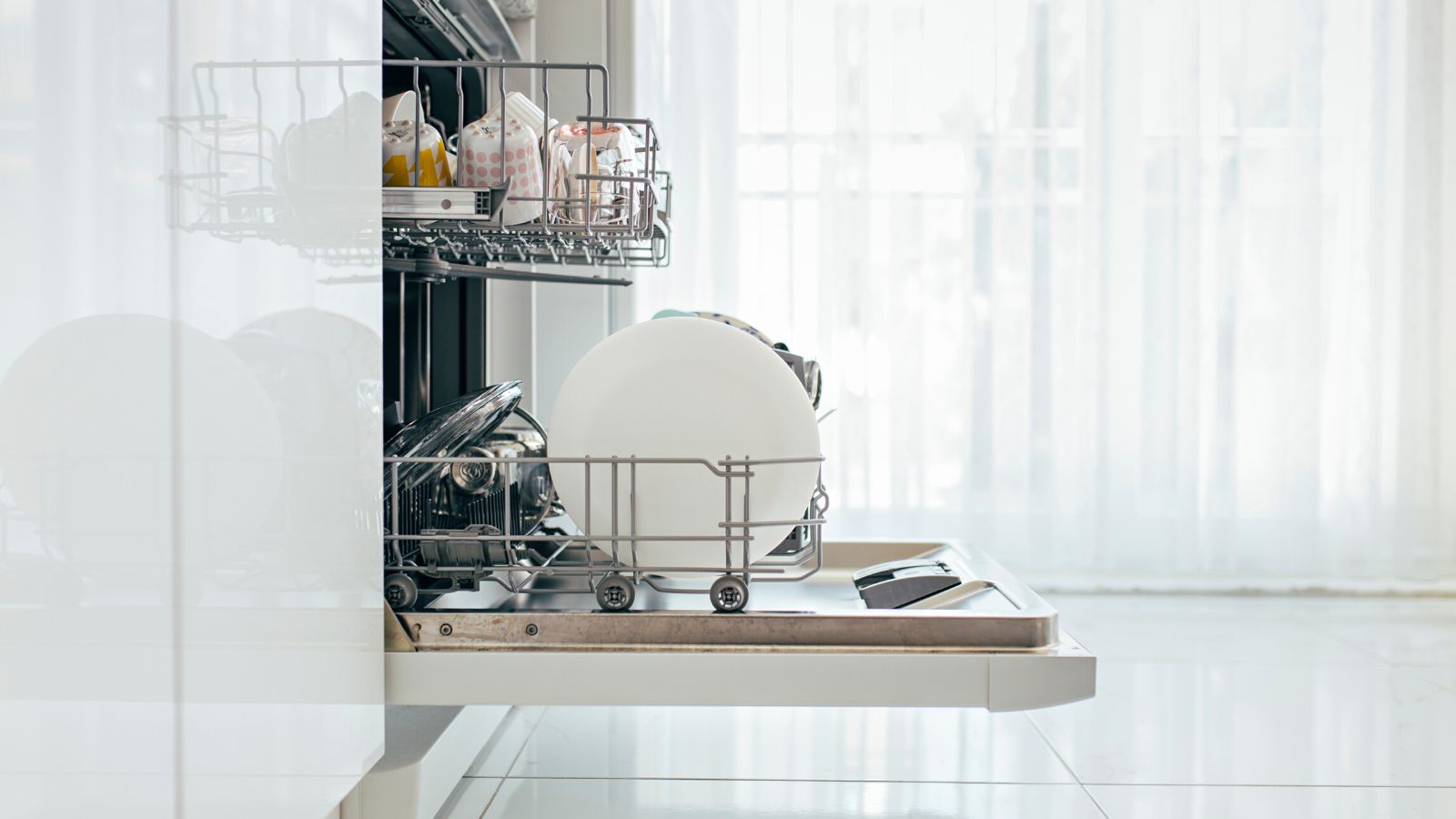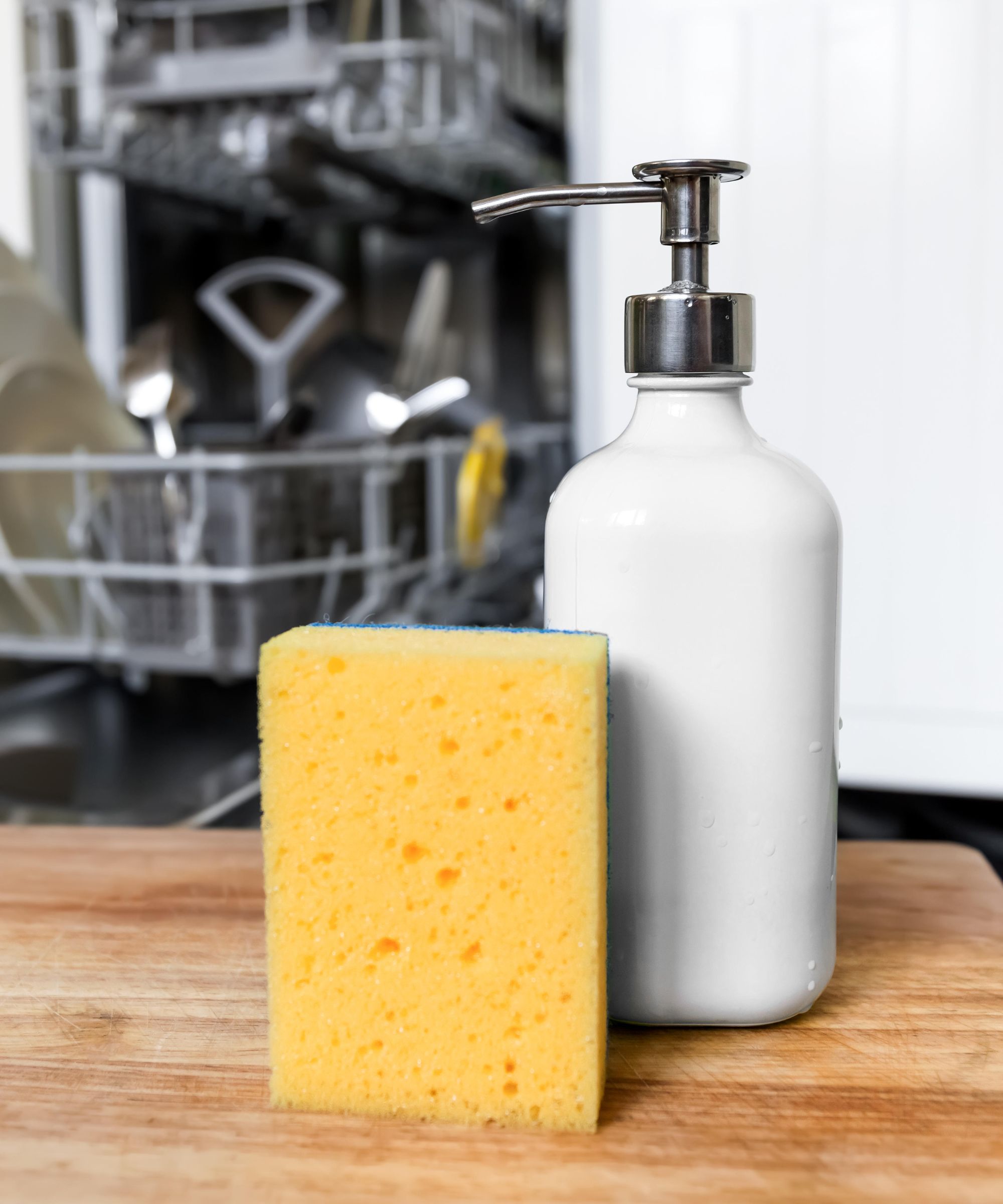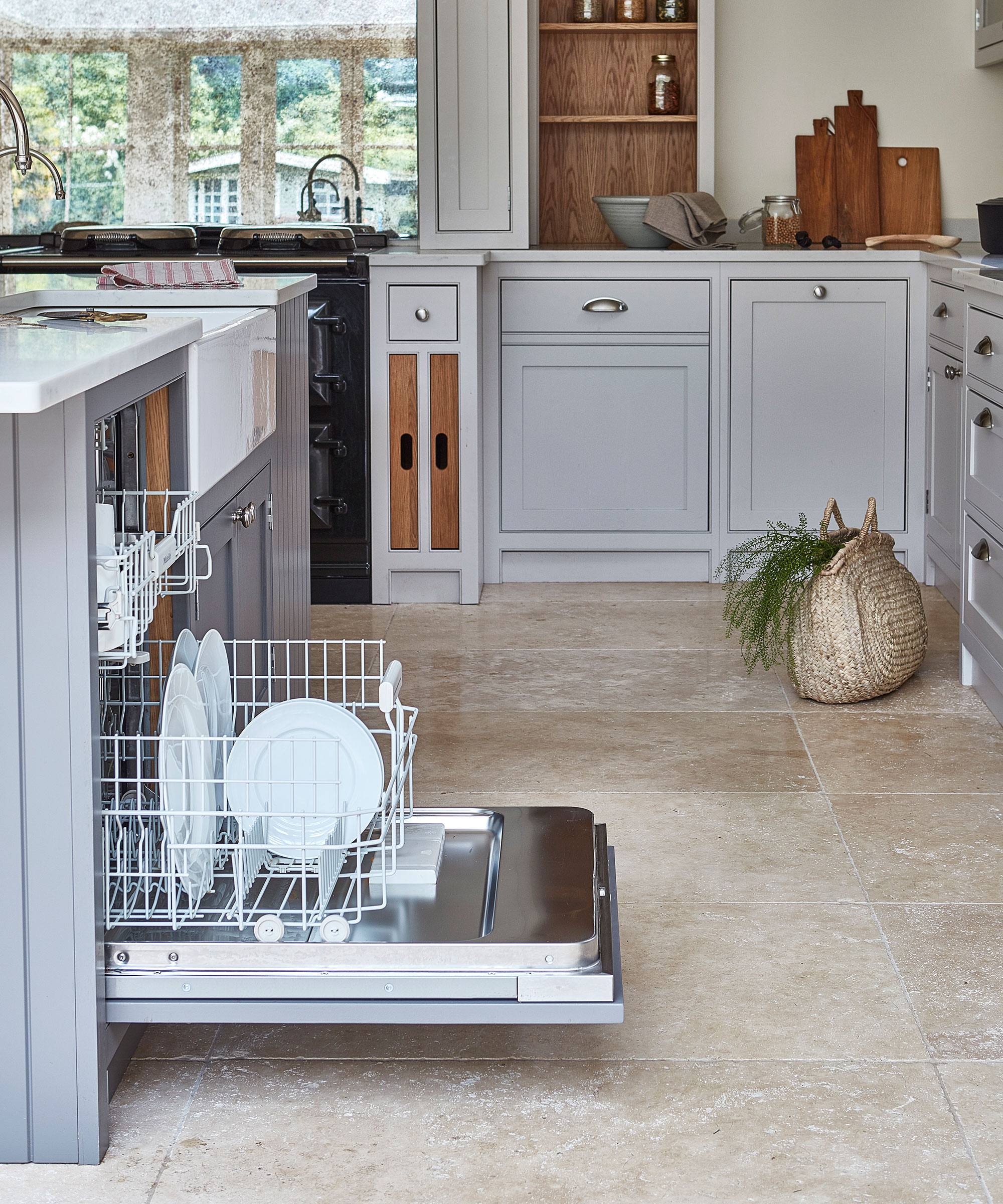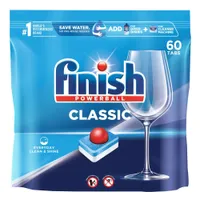Can you put dish soap in the dishwasher?
Stuck without dishwasher tablets? Dish soap may not be the best alternative, experts warn


If you have been stuck without a dishwasher tablet and have already stacked up a massive load of dishes in your machine, it can be tempting to pop in some dish soap and call it a day. After all, dish soap is great when cleaning dishes by hand in the sink.
Although dishwashers are incredibly practical appliances in our homes, dishwasher tablets exist for a very important reason. Using dish soap could prove fatal for your machine, experts warn and is one of the most important dishwasher mistakes to avoid.
Here, we explain why dish soap has no place in your dishwasher and what you can use instead of a dishwasher tablet if you have run out at the last minute.
Can you put dish soap in the dishwasher?
Of all the things you should not put in a dishwasher, dish soap is among the most important, says Andrew Brown, appliance repair technician at This Fixed House, as dish soap is designed for hand-washing dishes, and as such is formulated to produce a lot of suds and foam.

‘If used in a dishwasher, this rich formulation will lead to over-foaming potentially causing damage to the appliance as well as producing an uncontrollable overflow of suds and foam,’ Andrew explains. ‘The overflowing foam can in fact penetrate through the water seals and leak onto your kitchen floor or potentially cause a slip hazard. It can also lead to both mechanical and electrical problems within the appliance itself, including:
- Clogged filters: The excess suds and foam produced by dish soap can clog the dishwasher's filters, reducing the appliance's efficiency and compromising cleaning performance.
- Damaged spray arms: The suds and foam can interfere with the operation of the dishwasher's spray arms, too, potentially causing damage to the arms or clogging the nozzles.
- Short-circuits: If the over-foaming causes water damage to the dishwasher's electrical components, it can cause short circuits, leading to costly repairs or even a fire hazard in a worst-case scenario.
- Control panel damage: The excess water from over-foaming can also damage the dishwasher's control panel, leading to malfunctions and the need for repairs.
What's more, Andrew suggests that using dish soap could result in less efficient cleaning too. Dish soap does not behave the same when using a dishwasher vs. washing by hand. In a dishwasher, there is likely to be dish soap residue left behind as you do not wipe off the dishes with a sponge or cloth, this can lead to a cloudy film or a soapy aftertaste.

Andrew Brown has over eight years of experience working on residential household appliances, performing diagnostics, and repairs across most major brands. He graduated from the Denver Institute of Technology, is NASTeC certified, and has worked for Mr. Appliance.
The good news is that there is a quick dishwasher maintenance trick you can use if you do use dish soap in the dishwasher and have excess suds, shares Ron Shimek, appliance expert and president at Mr. Appliance, a Neighborly Company.
Design expertise in your inbox – from inspiring decorating ideas and beautiful celebrity homes to practical gardening advice and shopping round-ups.
Although it may seem counterintuitive, 'pour a ¼ cup of cooking oil into the dishwasher and run it for a minute or two,’ Ron suggests. ‘Open and check inside. The suds should be gone, and you can hit the cancel drain to flush all that out of the machine and then run with dishwasher detergent.’
The oil neutralizes the soap suds, giving them something to cling onto to be rinsed away more effectively.
What to use instead of dishwasher tablets

Although there are a surprising number of things you can clean with a dishwasher tablet, there are not many options when it comes to replacing them in your dishwasher. That being said, in a pinch, there are items you can substitute for dishwasher tablets if absolutely necessary, Ahmad Jamal, cleaning expert at CleanersAdvisor explains:
- Baking Soda: Baking soda is a mild abrasive that can help remove stains and odors from dishes. You can sprinkle a small amount of baking soda at the bottom of the dishwasher before running a cycle.
- Borax: Borax is a natural mineral that can be used as a substitute for dishwasher detergent. You can use about 1 tablespoon of borax in the detergent dispenser to clean your dishes.
- Vinegar: Vinegar can help to remove stains, grease, and odors from dishes. You can add a small amount of vinegar to the bottom of the dishwasher before running a cycle or use it as a rinse aid by pouring it into the rinse aid dispenser.
‘It's important to note that while these alternatives may work in a pinch, they may not provide the same cleaning results as dishwasher detergent,’ Ahmad adds.
Ron Shimek, appliance expert, agrees. ‘Nothing is better than using a commercial dishwashing detergent in your dishwasher,’ he says. In most cases, it is ‘better to wait until you purchase more dishwasher detergent or do a few dishes by hand if they are needed right now,’ he says.
Finish Classic Dishwashing Tablets | $11.74 at Walmart
Finish Classic contains glass protection ingredients, offering a powerful clean and shine for all of your dishes.

Ahmad is a self-proclaimed 'clean-freak', with years of experience tackling tough cleaning projects and advising others on how to deal with the worst of messes.
FAQs
Can I run a dishwasher without soap?
You can certainly run a dishwasher on a rinse cycle without soap, but it may not offer the best cleaning power for your dishes – especially if you have pots with burnt-on food. If you have run out of dishwasher tablets, then you could opt for using a cup of white vinegar, placed in a container on the top rack instead to help fight grease and food particles.
Can you use hand soap as dishwasher soap?
Using hand soap to clean your dishes in any situation is not recommended, but this is especially true of your dishwasher. Hand soap, in the first instance, is not designed to be food safe with chemicals added to ensure their antibacterial properties for your sink. What’s more, it is only best for oils as opposed to thick grease or even food, meaning it is often not powerful enough to clean your plates.
When you are stuck without a dishwasher tablet, adding dish soap to your dishwasher is the last thing you should be doing to clean dishes. Instead, opting for vinegar, or baking soda is a far easier, and more efficient way to clean your dishes without a commercial dishwasher tablet or detergent in a pinch.

Chiana is Homes & Gardens’ kitchen appliances editor. With a lifelong passion for cooking and baking, she grew up experimenting in the kitchen every weekend with her baking-extraordinaire Mom, and has developed a great understanding of how tools and appliances can make or break your ideal relaxing kitchen routine.
